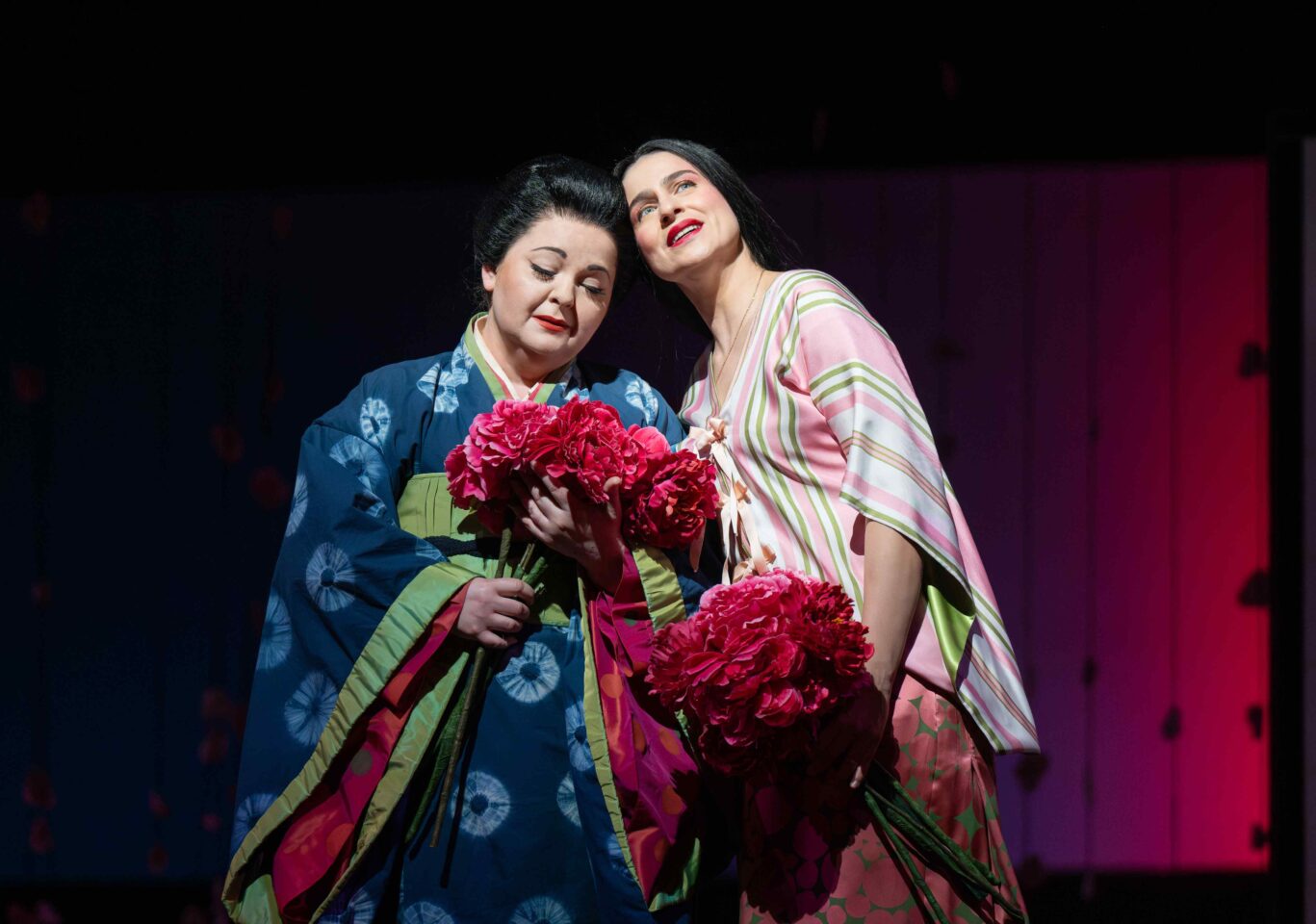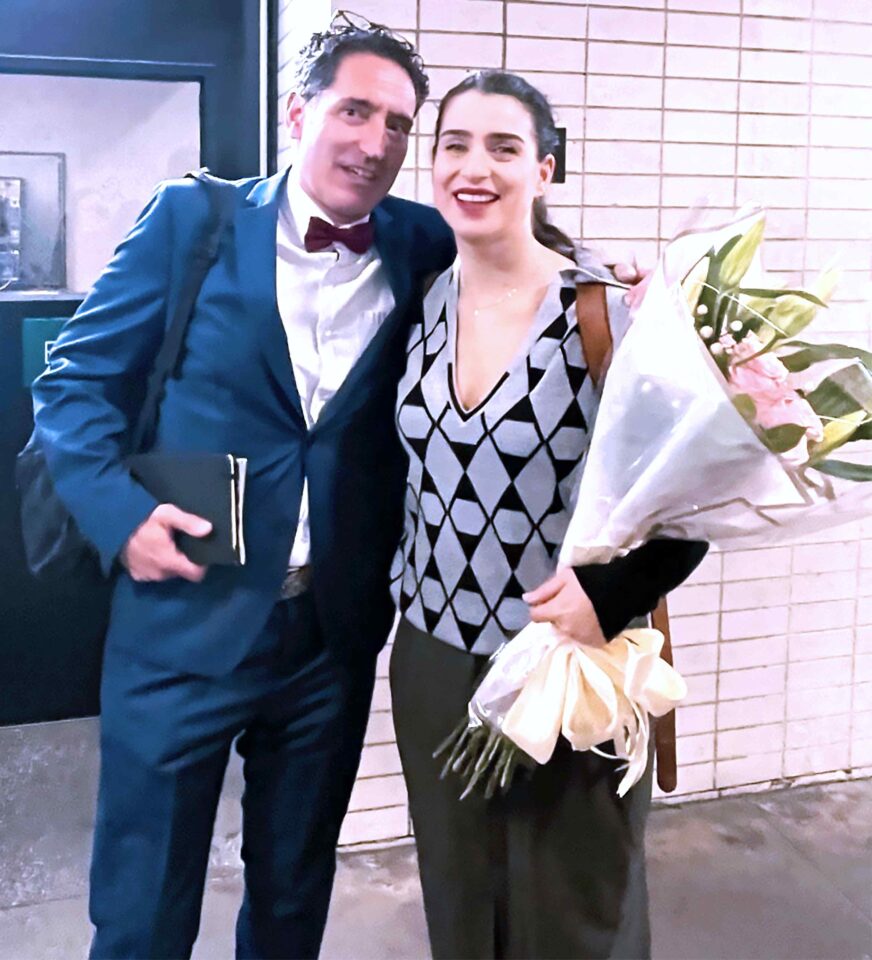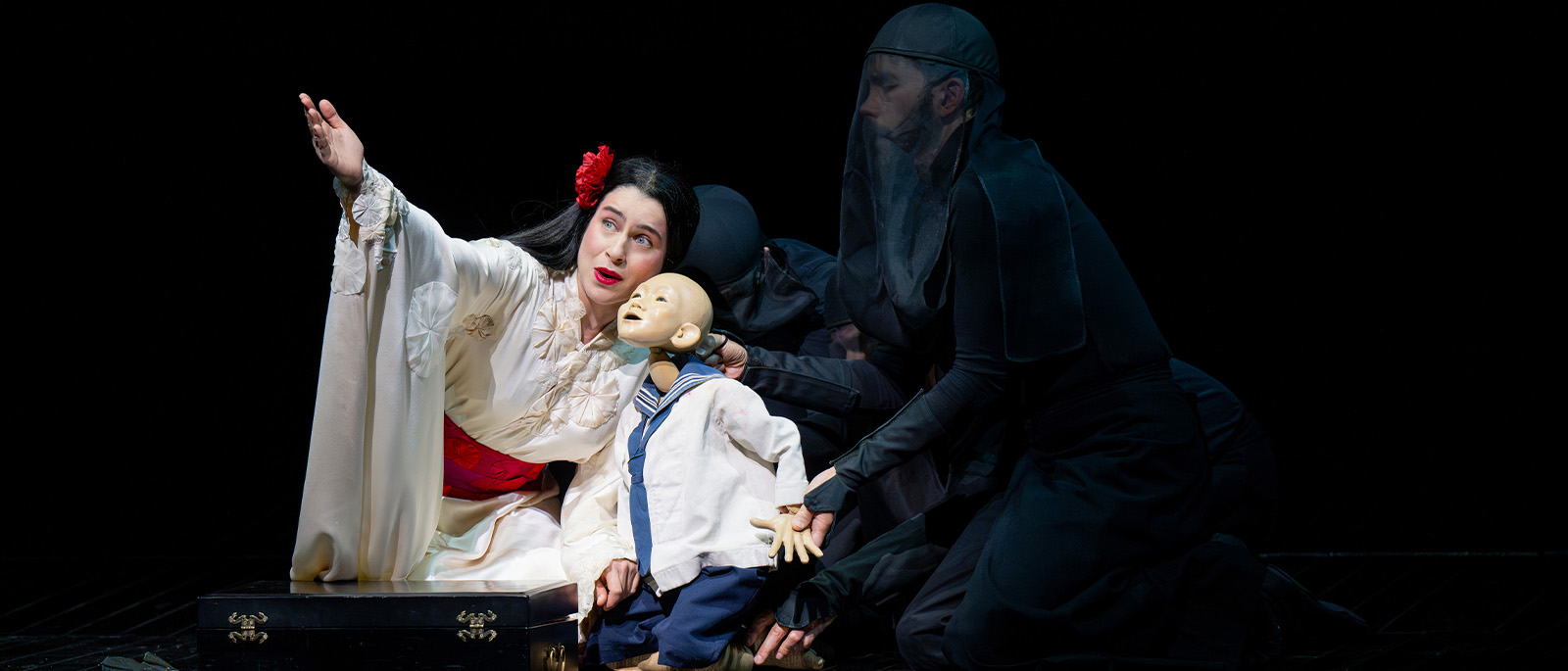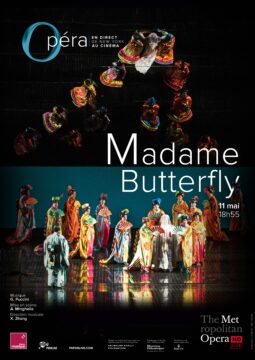Asmik Grigorian embodies Cio-Cio-San with a visceral connection, for a profoundly personal reason: while pregnant with Asmik, her mother, the soprano Irena Milkeviciute, performed the titular role alongside Gegam Grigorian’s Pinkerton, her husband and Asmik’s father. It’s nowonder then that this role holds a special place in her heart, especially as she makes her in loco debut at the Lincoln Center, hailed by the New York Times as one of the most talented dramatic artists and singing actresses in contemporary operatic art.
At 36, Jonathan Tetelman can rightly be considered a leading figure among the tenors of the lyrical sphere. Anthony Minghella’s production is well-known and remains as effective as ever with its succession of poetic figures and particular emphasis on color through the use of Bunraku, a sophisticated 17th-century puppet theatre dealing with themes of human emotions and Japanese societal obligations, rather than the comedic or educational style familiar in European children’s theatre.
The production’s continuation of characters, especially the child of Cio-Cio-San, sketches an important, moving, yet also unsettling and disturbing figure, making it a hallmark of this 2006 production originally starring Roberto Alagna and Patricia Racette.

This second performance was truly stratospheric in every sense of the word. The musical forces of the Met and its choir were in top form, handling both nuanced and powerful orchestral passages under the baton of conductor Xian Zhang, who also made her debut in this opera. Lucas Meachem’s Sharpless was deeply moving, showcasing a voice of admirable projection. North Carolina native, having appeared at the Met in roles from Fedora, La Bohème , he is one of the most compelling consuls we’ve heard recently.
Elizabeth DeShong, our Fides from last year’s Prophet at the Aix Festival, delivered an impressive Suzuki with deep, beautifully sustained notes. Her performance stands out as one of the most exceptional Suzukis today, surpassing even Marie-Nicole Lemieux at the Chorégies d’Orange opposite Ermonela Jaho’s Butterfly.
The secondary roles, notably the Bonze and Goro portrayed by Robert Pomako and Tony Stevenson, were excellently staged, avoiding caricature especially in the latter’s case. Notable too was the Yamadori of Jeongcheol Chade and the understated Kate Pinkerton by Briana Hunter, whose character was less highlighted compared to the staging by Daniel Benoin recently at the Nice Opera.
Remaining focal were Jonathan Tetelman and our star, Asmik Grigorian. Tetelman deliberately showcased his considerable tenorial talents, suitable for the Met, with exaggerated vocal openings and note sustains. However, his Act 1 duet was sublime, and the “Addio fiorito asil” beautifully sung. He effectively added a dramatic, albeit slightly veristic,dimension toward the end of the aria, portraying a character less callous and more loving and remorseful than in other productions.

Asmik Grigorian’s in loco debut was nothing short of Olympian, presenting a profoundly dramatic portrayal of Cio-Cio-San. Beyond the initial portrayal of a 15-year-old girl, her character evolved into one marked by a tragic destiny, clearly comprehensible from our third- row orchestra seat but perhaps less so to those farther back in this monumental venue. Her facial expressions, gazes, smiles, and sadness enriched Minghella’s production, showing a character who is neither naïve nor entirely gullible, especially from the second act onward . The meeting with the consul, the looks, the moments with her child, with Suzuki show that she is already convinced that Pinkerton will not return, at least not for her and this is particularly well shown thanks to her tragic dimension.
Vocally, comparisons with the performance of Corinne Winter’s Butterfly at Nice Opéra are inevitable – with the small warnings we mentioned- and whose phrases like «Butterfly rinegata» or «m’ha scordata» did not allow us to smell the paste of the great tragedian while Asmik Grigorian paid in cash. Obviously, the expected tunes like «Un bel di vedremo», the duets, all the passages of the 2nd act with a «va, a fargli compagnia» addressed to Suzuki , was delivered with the unique intensity of a seasoned actress. Her performance evokes the dramatic play of Magda Olivero and the vocal power of Raina Kabaivanska, establishing her as a worthy successor to these legendary divas, managing the role with effortless vocal prowess, including dazzling high Cs.
The climb up the hill in the first act does not pose any problem of breath without his voice never being disengaged. She combines the art of nuance and the art of power, a power that is found in her final tune demonstrating that she also knows how to sing Richard Strauss and Richard Wagner. Prodigious in this singer the ability to link power and legato, the ability to nuance that is imagined as a legacy of her parents stentor of the father, the finesse of the mother.

A standing ovation ensued, as only New Yorkers can deliver, though one might wish for more encores. One could easily imagine such a performance in France or Italy prompting five or six encores or more. Regrettably, only a handful of people were present at the artist’s exit after such a divinely favored evening.
Hervé Casini
30 avril 2024
translation by Cécile Day-Beaubié



